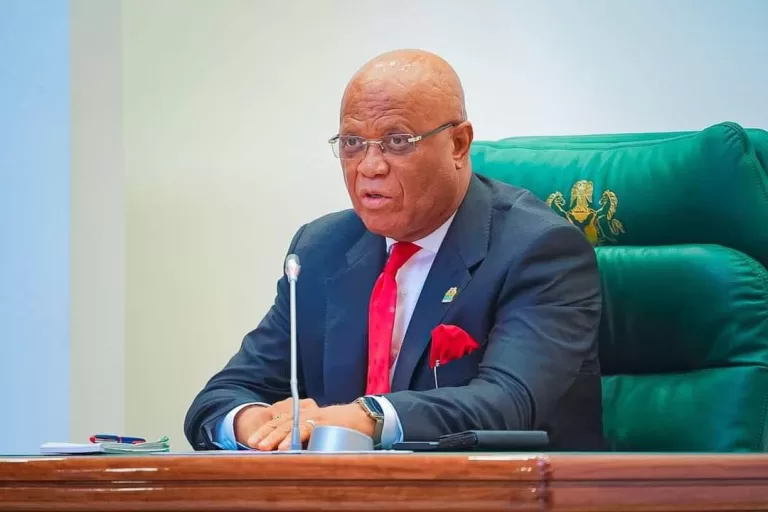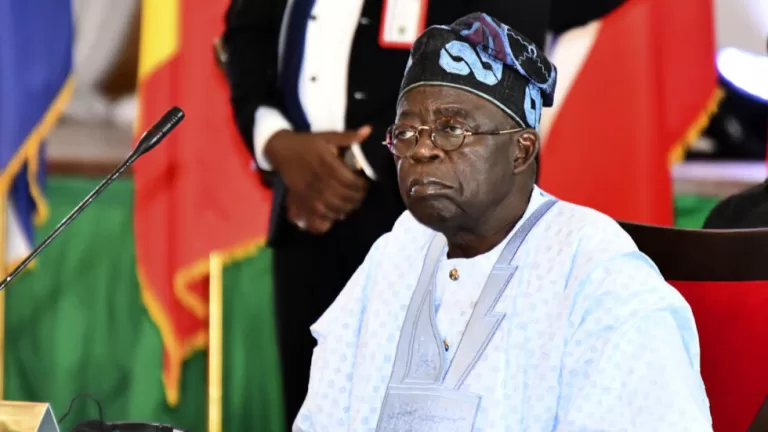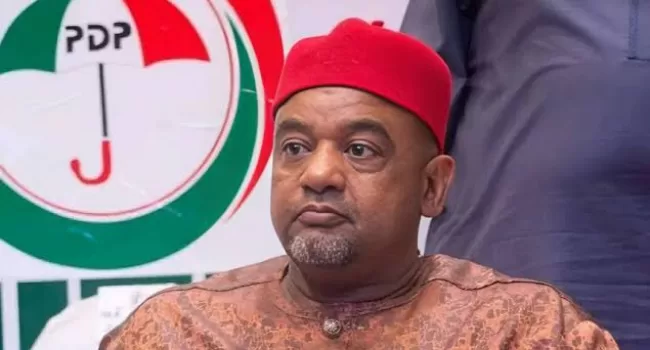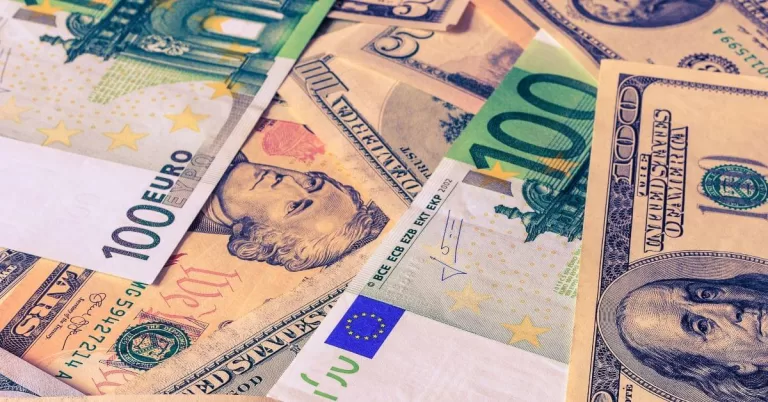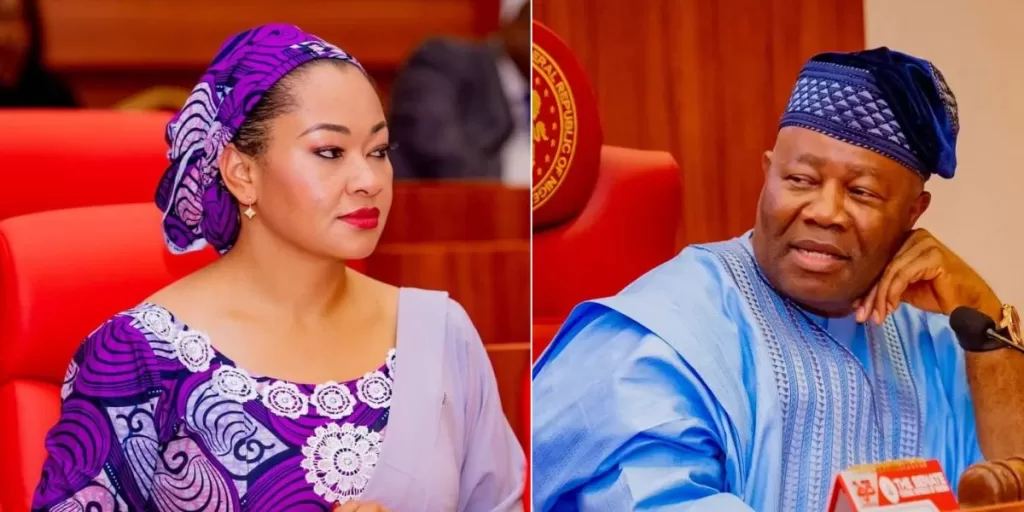
A new legal front has opened in the intensifying standoff between Senate President Godswill Akpabio and suspended Kogi Central Senator Natasha Akpoti-Uduaghan, as Olisa Agbakoba, a Senior Advocate of Nigeria (SAN) and former Nigerian Bar Association (NBA) President, has issued a stern demand for a retraction of sexual harassment allegations made against Akpabio.
At a press conference in Lagos, Agbakoba acting as lead counsel for the Senate President announced the delivery of a second formal letter to Akpoti-Uduaghan on April 22. The letter reiterates the demand first issued on April 14, which the senator reportedly ignored.
According to Agbakoba, Akpoti-Uduaghan’s claims are riddled with contradictions, particularly around the timeline of the alleged misconduct and her subsequent behavior. “You alleged that harassment occurred on December 8, 2023, but you praised Senator Akpabio publicly the next day on Instagram and X,” he noted, questioning both the delay and the credibility of the accusation. “Rather than explain this contradiction, you deleted the posts, this raises serious questions.”
The lawyer also raised concerns about the time gap 14 months between the alleged incident and when it was made public in February 2025. During this period, Akpoti-Uduaghan appeared at several public events alongside Akpabio, including international parliamentary functions, sharing photos that portrayed a cordial relationship.
Agbakoba presented screenshots of these social media interactions, arguing that they “undermine the authenticity” of the senator’s allegations and reinforced the view that her claims may be politically motivated or opportunistic. He reiterated the demand for a full retraction to protect Akpabio’s reputation.
The legal demand coincided with Akpoti-Uduaghan’s release of a “satirical apology letter” on her social platforms a sharply worded critique that highlighted what she described as “a toxic culture of patronage and entitlement” in Nigeria’s upper chamber. She accused lawmakers of seeking political compliance through personal favors rather than merit, implying that her harassment claims are part of a larger dysfunction in the legislative space.
This latest exchange builds upon an already volatile history between both figures. Akpoti-Uduaghan first accused Akpabio of sexual harassment during a nationally televised interview in February 2025, alleging that he made lewd suggestions and linked the passage of her legislative proposals to her willingness to “take care” of him.
Akpabio swiftly denied the charges, asserting he had “never harassed any woman” and called for the judiciary to handle the matter impartially.
The fallout was immediate and severe. On March 6, the Senate suspended Akpoti-Uduaghan for six months, citing disruptive conduct and procedural violations. Her complaint, submitted personally instead of through a fellow senator, was dismissed for breaching Senate protocols.
However, the public narrative has since taken a turn. Massive protests erupted across multiple Nigerian cities, coalescing under the slogan #WeAreAllNatasha, with civil society groups condemning the suspension as retaliation against a whistleblower. Akpoti-Uduaghan has also taken her case to international platforms, denouncing the suspension as an “institutional witch-hunt” and calling for global accountability mechanisms.
Even a petition to recall her from the Senate, submitted to the Independent National Electoral Commission (INEC), failed after the electoral body ruled it constitutionally insufficient.
Their long-standing conflict includes earlier flashpoints, such as a July 2024 Senate session in which Akpabio rebuked Akpoti-Uduaghan with the comment, “We are not in a nightclub” a remark widely condemned as sexist, for which Akpabio was later compelled to apologize.
Now, with a public retraction demanded, a pending legal battle looming, and political fault lines widening, the case continues to reverberate beyond the walls of Nigeria’s National Assembly.
What to Take Away from This Story:
- Institutional Crisis or Personal Vendetta? This escalating feud reflects deeper questions about gender, power, and accountability in Nigeria’s political institutions.
- Procedural vs. Moral Authority: While the Senate followed procedural grounds in dismissing the harassment complaint, public sentiment continues to rally behind Akpoti-Uduaghan, raising concerns about institutional bias.
- Legal Warfare Looms: The call for a retraction is not merely a public relations tactic, it may signal the start of a defamation lawsuit or more aggressive legal positioning.
- Narrative Control Is Key: Both parties are leveraging media, traditional and social to shape public perception. How each navigates this battle for credibility may determine future outcome.
- Broader Implications: This case may influence future whistleblowing cases in Nigeria’s legislature and shape how sexual misconduct allegations are handled in high offices.


